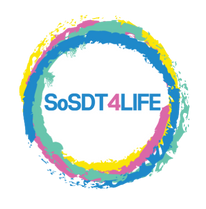Maintaining a balanced and nutritious diet is essential for overall health, and it becomes even more crucial when it comes to cancer prevention and treatment. Let’s explore the impact of nutrition on cancer prevention and treatment, focusing on the principles of natural immune reconstruction, expertise in de-bulking cancer treatment, and the holistic approach offered by healthcare professionals.
Understanding the Link Between Nutrition and Cancer:
Scientific research has shown that certain dietary patterns and nutrients can influence the development and progression of cancer. A well-balanced diet rich in fruits, vegetables, whole grains, lean proteins, and healthy fats provides essential nutrients, antioxidants, and phytochemicals that support the body’s natural defense mechanisms and help prevent the formation of cancerous cells. Conversely, a poor diet high in processed foods, added sugars, unhealthy fats, and excessive calorie intake may increase the risk of cancer.
Natural Immune Reconstruction for Cancer Prevention:
Emphasizing the principle of natural immune reconstruction can enhance the body’s ability to fight cancer. Incorporating immune-boosting foods and supplements into the diet strengthens the immune system and improves overall health. Key nutrients such as vitamins A, C, D, and E, as well as zinc, selenium, and omega-3 fatty acids, have been shown to have immune-enhancing properties. Additionally, phytochemical-rich foods like berries, leafy greens, and cruciferous vegetables provide antioxidant and anti-inflammatory effects that can help protect against cancer.
Role of Nutrition in De-Bulking Cancer Treatment:
De-bulking cancer treatment is a specialized approach employed by healthcare professionals. This technique involves reducing the tumor burden through surgery or other minimally invasive procedures. Nutrition plays a crucial role in supporting patients before, during, and after de-bulking treatments. Proper nutrition optimizes the body’s ability to heal and recover, promotes tissue repair, and reduces the risk of complications. Nutritionists work closely with patients, developing personalized meal plans that address their unique nutritional needs and support their treatment goals.
Holistic Cancer Therapy and Treatment:
Holistic cancer therapy treatment takes into account the physical, emotional, and spiritual well-being of patients. A comprehensive approach that integrates conventional treatments with complementary therapies can be beneficial. Nutrition is an integral part of this holistic approach. Nutritionists collaborate with the medical team to develop individualized nutrition plans that complement specific treatments and promote overall well-being. By focusing on nourishing the body, managing side effects, and improving quality of life, patients can actively participate in their healing process.
Gut Health and Cancer:
Emerging research suggests that the health of our gut microbiome plays a significant role in cancer prevention and treatment. The gut microbiome consists of trillions of beneficial bacteria that aid in digestion, nutrient absorption, and maintaining gut health and a strong immune system. A diverse and balanced gut microbiome can help reduce inflammation, promote healthy cell growth, and enhance the body’s ability to fight cancer. Including probiotic-rich foods like yogurt, kefir, and sauerkraut, and incorporating high-fiber foods such as whole grains, legumes, and vegetables can contribute to a healthy gut microbiome and overall well-being.
Ketogenic Therapy and Cancer:
Another area of interest in the field of cancer nutrition is ketogenic therapy. The ketogenic diet is a low-carbohydrate, high-fat diet that forces the body to burn fat for fuel instead of carbohydrates. Some studies suggest that the ketogenic diet may help starve cancer cells, as they primarily rely on glucose for energy. This therapeutic approach is still being researched and is usually conducted under medical supervision. It is important to consult with healthcare professionals before considering any dietary changes, especially for cancer patients.
Supplements and Nutrition in Cancer Treatment:
In addition to a well-balanced diet, certain supplements and nutritional interventions may be beneficial in supporting cancer treatment. However, it is essential to consult with healthcare professionals before starting any supplementation regimen, as individual needs and potential interactions with treatments should be carefully considered. Some commonly recommended supplements for cancer patients include omega-3 fatty acids, vitamin D, curcumin, green tea extract, and probiotics. These supplements may offer potential benefits such as reducing inflammation, supporting immune function, and enhancing overall well-being. However, it is crucial to emphasize that supplements should never be considered a substitute for a nutritious diet or medical treatments. They should be used in conjunction with a comprehensive cancer treatment plan under the guidance of healthcare professionals specializing in oncology nutrition.
Nutrition is crucial for cancer prevention and treatment, supporting overall health, improving outcomes, managing side effects, and enhancing quality of life. By combining a balanced diet, immune-boosting foods, gut health support, and professional guidance, patients can optimize their nutrition during treatment. Working closely with healthcare professionals, we tailor a personalized plan to maximize the benefits of nutrition. A holistic approach to nutrition empowers patients, promoting well-being throughout the cancer journey.

Leave A Comment
You must be logged in to post a comment.